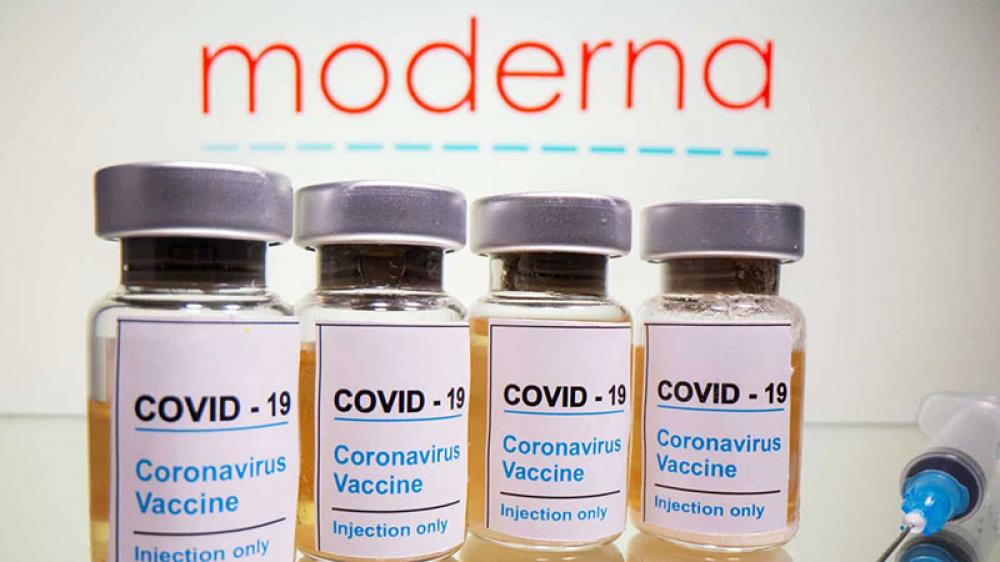Just Earth News | @justearthnews | 20 Dec 2021

Image: Wallpaper Cave
Moderna, a biotechnology company pioneering messenger RNA (mRNA) therapeutics and vaccines, on Monday announced preliminary neutralizing antibody data against the Omicron variant following the Company’s booster candidates at 50 µg and 100 µg dose levels.
The currently authorized 50 µg booster of mRNA-1273 increased neutralizing antibody levels against Omicron approximately 37-fold compared to pre-boost levels and a 100 µg dose of mRNA-1273 increased neutralizing antibody levels approximately 83-fold compared to pre-boost levels.
“The dramatic increase in COVID-19 cases from the Omicron variant is concerning to all. However, these data showing that the currently authorized Moderna COVID-19 booster can boost neutralizing antibody levels 37-fold higher than pre-boost levels are reassuring,” said Stéphane Bancel, Chief Executive Officer of Moderna. “To respond to this highly transmissible variant, Moderna will continue to rapidly advance an Omicron-specific booster candidate into clinical testing in case it becomes necessary in the future. We will also continue to generate and share data across our booster strategies with public health authorities to help them make evidence-based decisions on the best vaccination strategies against SARS-CoV-2.”
As previously described, the Company is continuously advancing booster candidates to address emerging variants of concern (VOC).
The strategy includes evaluating the prototype vaccine (mRNA-1273) at the authorized booster dose (50 µg) and a higher dose (100 µg), multivalent candidates that incorporate previous VOCs (mRNA-1273.211, mRNA-1273.213) also at 50 µg and 100 µg, and VOC-specific booster candidates (Delta, Omicron).
Booster candidates are being evaluated in ongoing Phase 2/3 studies of approximately 300-600 participants per arm.
Today’s data includes sera from 20 booster recipients each of mRNA-1273 at the 50 µg and 100 µg dose levels, multivalent candidate mRNA-1273.211 at the 50 µg and 100 µg dose levels, and multivalent candidate mRNA-1273.213 at the 100 µg dose level.
Neutralizing antibodies against Omicron were assessed in a pseudovirus neutralization titer (ID50) assay (PsVNT) conducted at laboratories established by the National Institute of Allergy and Infectious Diseases’ (NIAID) Vaccine Research Center at Duke University Medical Center. A preprint submission is being prepared based on the data.
All groups had low neutralizing antibody levels in the Omicron PsVNT assay prior to boosting.
At day 29 post boost, the authorized 50 µg booster of mRNA-1273 increased neutralizing geometric mean titers (GMT) against Omicron to 850, which is approximately 37-fold higher than pre-boost levels.
At day 29 post boost, the 100 µg dose booster of mRNA-1273 increased neutralizing GMT to 2228, which is approximately 83-fold higher than pre-boost levels.
The multivalent candidates boosted Omicron specific neutralizing antibody levels to similarly high levels at both the 50 µg and 100 µg levels.
Based on the strength of neutralizing titers generated by mRNA-1273, the rapid pace of Omicron expansion, and the increased complexity of deploying a new vaccine, the Company will focus its near-term efforts to address Omicron on the mRNA-1273 booster.
The Company will continue to assess the breadth and durability of neutralizing antibodies from the multivalent booster candidates in the months ahead.
The Company also announced the safety and tolerability data from the Phase 2/3 study of the 100 µg booster dose of mRNA-1273 (N=305). A 100 µg booster dose of mRNA-1273 was generally safe and well tolerated.
The frequency and nature of solicited systemic and local adverse events 7 days after receiving a booster were generally comparable to those seen after the two-dose primary series.
There was a trend toward slightly more frequent adverse reactions following the 100 µg booster dose relative to the authorized 50 µg booster dose of mRNA-1273.
Moving forward, given the strength of the mRNA-1273 and the speed at which the Omicron variant is spreading, Moderna’s first line of defense against Omicron will be a booster dose of mRNA-1273.
Given the long-term threat demonstrated by Omicron’s immune escape, Moderna will also continue to develop an Omicron-specific variant vaccine (mRNA-1273.529) that it expects to advance into clinical trials in early 2022 and will evaluate including Omicron in its multivalent booster program.